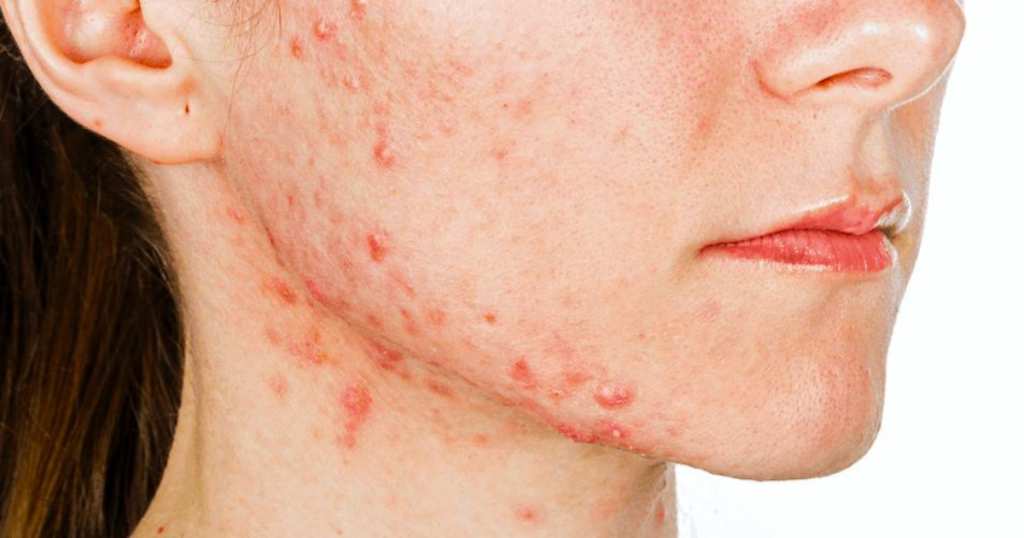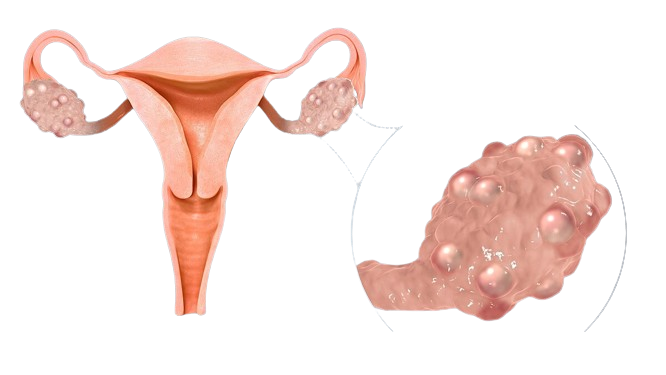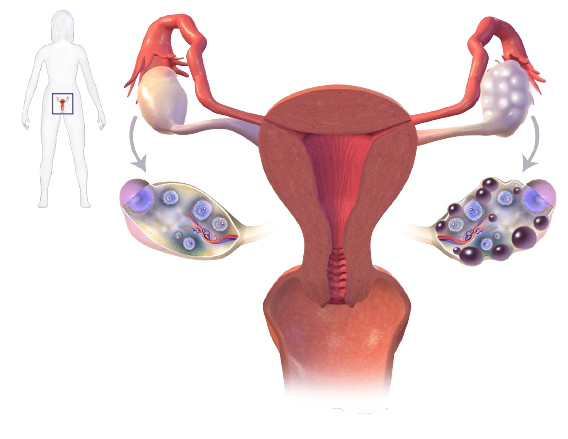Polycystic Ovary Syndrome (PCOS): Symptoms & Treatment

Polycystic ovary syndrome (PCOS) is a condition in which the ovaries produce abnormal levels of androgens. Women usually find male sex hormones in limited amounts. The name polycystic ovarian disease describes the many small cysts (fluid-filled sacs) that form on the ovaries. Yet, some women with this problem do not develop ulcers, while other women who do not have this problem develop growth.
Ovulation occurs when the adult egg leaves the ovary. A man’s semen is typically the means by which an egg is fertilized. If left untreated, the egg will be expelled from the body during the menstrual cycle.
symptoms and causes of PCOS
The side effects of PCOS can vary from person to person. Side effects can change over time and often occur without proper stimulation.
Potential side effects include:
- weighty, long, irregular, unusual or missing periods
- fruitlessness
- skin breakout or slick skin
- unreasonable hair on the face or body
- male-design sparseness or hair diminishing
- weight gain, particularly around the tummy
Other medical issues are commonly experienced by individuals with PCOS, including:
- diabetes type 2
- High blood pressure (hypertension)
- Increase in cholesterol level.
- My heart disease
Endometrial disease (malignant growth of the internal covering of the uterus)
PCOS can also cause anxiety, depression, and negative body image. Side effects, for example, fruitlessness, weight and undesirable body hair can prompt social disgrace. It can affect other areas of life such as family, relationships, work and social participation.
Polycystic ovary syndrome Diagnosis
Two or more symptoms of polycystic ovary disease lead to its diagnosis.
- After identifying the various causes, symptoms, or effects of high androgen levels (specific or unwanted symptoms, hair loss, bronchitis, or high testosterone levels);
- Menstruation or not in women: They stop due to various reasons. And
- Polycystic egg with ultrasound.
Treatment and management
If you’ve been diagnosed with polycystic ovary syndrome (PCOS). It means working with your doctor and healthcare team to manage your symptoms and enjoy healthy outcomes.
Women with PCOS may experience side effects that must different treatments. Depending on your symptoms, you may seek help from many medical specialties, including endocrinologists, gynecologists, nutritionists, dermatologists, exercise physiologists, fitness specialists and therapists.
your doctor can help you manage your thoughts and refer you to doctors if necessar
PCOS and natural therapies

More than 70% of women with Polycystic ovary syndrome PCOS in Australia use natural and complementary treatments to improve one or more aspects of their health. Research suggests that women with PCOS often use these treatments to improve their health and treat symptoms of PCOS, such as infertility and depression. The most used natural remedies include nutritional supplements such as vitamins, minerals and fish oil, as well as herbal remedies in the form of teas, tablets or liquids.
The sorts of medicines and cures utilized in regular and correlative treatments are many times affected by the fundamental concern(s) of the lady; for instance, the treatment for overabundance of hair development may be unique about a treatment used to further develop richness.
Fertility and pregnancy
Many ladies with polycystic ovary condition (PCOS) have kids. yet a need for clinical help to get pregnant. Figure out how to work on your possibilities of becoming pregnant and ways of lessening likely dangers during pregnancy.
Fertility
An egg can be affected in release from the ovary by PCOS (Polycystic Ovary Syndrome). The ovary produces one egg every month. When the egg is released, it is removed from the ovary and pushed into the fallopian tube so it can be treated.
In PCOS, elevated levels of androgens (male chemicals) and insulin can interfere with a woman’s cycle and cause intermittent ovulation or ovulation to stop altogether.
PCOS and related health conditions
PCOS is a normal chemical issue for ladies of childbearing age. Ladies with PCOS may not ovulate, have elevated degrees of androgens, and have many little blisters on the ovaries. PCOS can cause missed or sporadic feminine periods, overabundance hair development, skin inflammation, barrenness, and weight gain.
Living with PCOS
A solid eating regimen and more actual work can assist you with getting in shape and decrease your side effects. They can likewise assist your body with utilizing insulin all the more , lower blood glucose levels, and may assist you with ovulating. Prescriptions to treat different side effects. A few drugs can assist with diminishing hair development or skin inflammation.






